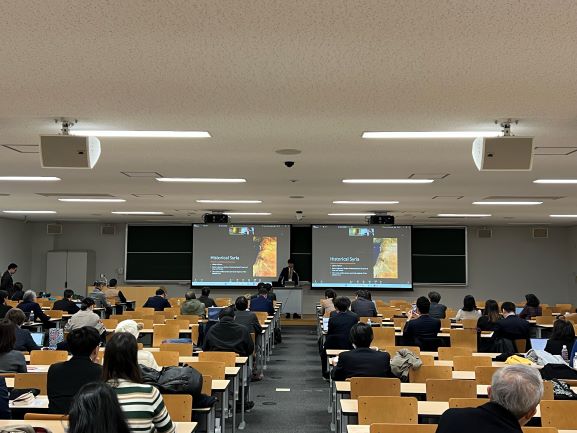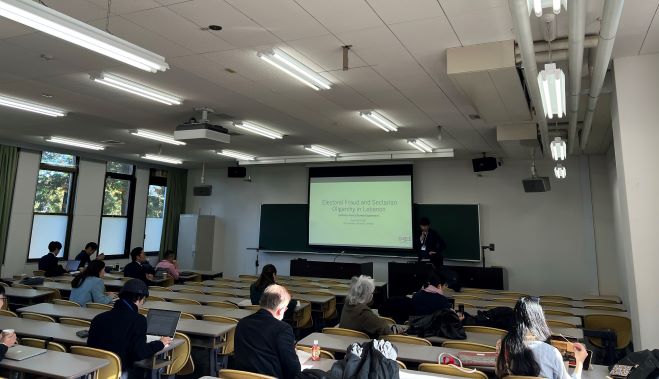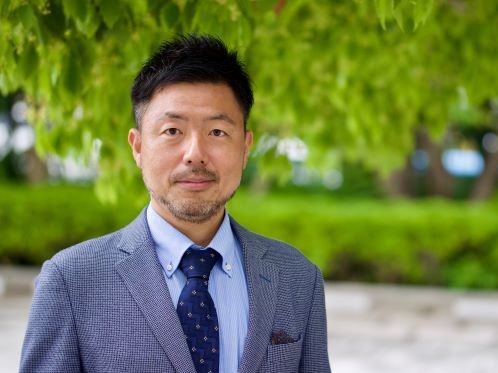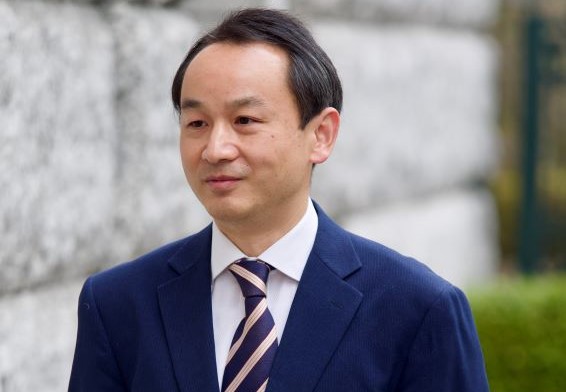Research Activity Report / Kota Suechika
Professor Kota Suechika delivered a keynote speech and presented a panel report at the 15th Conference of the Asian Federation of Middle East Studies Associations (AFMA)
2024 / 12 / 12

2024 / 12 / 12
The 15th Conference of the Asian Federation of Middle East Studies Associations (AFMA) was held at Doshisha University in Kyoto, Japan, on December 7-8, 2024. AFMA is a federation of Middle East Studies associations from four countries (Japan, China, Korea, and Mongolia) and has held a conference every two years. The conference this year was attended by nearly 200 researchers and students from around the world.
As a member of the conference organizing committee, Professor Kota Suechika (RARA Fellow) delivered a keynote speech on the first day of the conference and presented a paper in the panel session that was organized by himself on the second day.
In his keynote speech, Prof. Suechika presented his research under the title “Connecting the Dots: New Initiatives for Middle Eastern ‘Area Studies 2.0’.” Prof. Suechika reviewed the history of his own research and put forward a proposal for the future of Middle Eastern Area Studies. In particular, he brought out his attempts to expand both research subjects and methodologies in his research on “Historical Syria,” in which he has been engaged for more than a quarter of a century, and discussed the potential of “Area Studies 2.0,” which has more sophisticated interdisciplinarity as its strength.
*“Historical Syria” refers to the area comprising present-day Syria, Lebanon, Jordan, Palestine/Israel, and parts of Iraq and Turkey.
In the meantime, the panel session, entitled “Reconsidering Regime Security in the Middle Eastern Monarchies and Republics,” featured five researchers from Japan, Taiwan, and South Korea. Each of them presented their respective latest research results on the resilience of political regimes in Middle Eastern countries. Prof. Suechika chaired the session and presented his own paper, “Electoral Fraud and Sectarian Oligarchy in Lebanon: Evidence from a Survey Experiment,” in which he discussed why electoral fraud is rampant in Lebanon’s democracy and its causes, using the results of a survey experiment.



